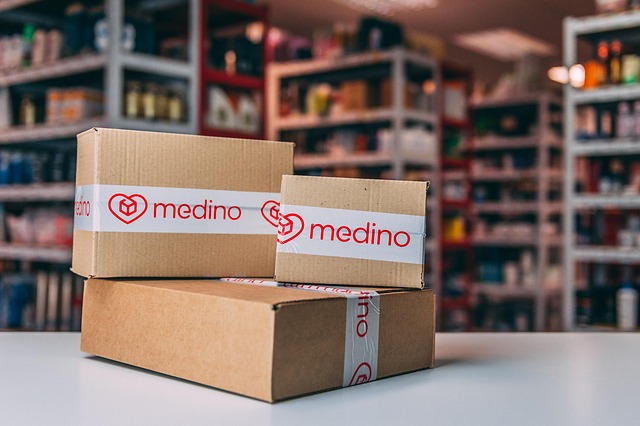Exploring Opportunities as Medicine Delivery Drivers for Global Firms
The role of medicine delivery drivers is increasingly gaining traction in today’s fast-paced world. As pharmaceutical companies and healthcare providers seek efficient methods to deliver essential medications, the need for reliable drivers has never been greater. While this career path may not seem traditional, it offers a unique set of opportunities for those interested in contributing to a crucial industry.

What are the primary responsibilities of medicine delivery drivers?
Medicine delivery drivers play a vital role in medical logistics networks, ensuring that essential medications reach patients, healthcare facilities, and pharmacies in a timely manner. Their primary responsibilities include:
-
Safely transporting pharmaceutical products from warehouses to distribution centers and end destinations
-
Maintaining proper temperature control for sensitive medications
-
Accurately documenting deliveries and managing inventory
-
Adhering to strict security protocols to prevent theft or tampering
-
Providing excellent customer service to recipients
These drivers must be detail-oriented, reliable, and capable of handling the unique challenges associated with transporting medical supplies.
What qualifications are required to become a medicine delivery driver?
To become a medicine delivery driver for global firms, candidates typically need to meet the following qualifications:
-
Valid driver’s license with a clean driving record
-
High school diploma or equivalent
-
Background check clearance
-
Ability to lift and move heavy packages
-
Excellent communication and customer service skills
-
Basic computer literacy for inventory management and route planning
Some companies may require additional certifications, such as hazardous materials handling or specialized pharmaceutical transport training.
How does the medicine delivery industry impact healthcare accessibility?
The medicine delivery industry plays a crucial role in improving healthcare accessibility, particularly in underserved areas. By efficiently delivering essential medications to pharmacies, hospitals, and patients’ homes, these drivers help:
-
Reduce treatment delays for patients with chronic conditions
-
Ensure timely access to life-saving medications in emergencies
-
Support the continuity of care for patients in remote or rural areas
-
Facilitate the distribution of vaccines and other preventive medications
-
Enable home healthcare services by providing necessary medical supplies
This industry’s impact extends beyond individual patient care, contributing to overall public health improvements and healthcare system efficiency.
What are the challenges faced by medicine delivery drivers?
While rewarding, the role of a medicine delivery driver comes with its unique set of challenges:
-
Time-sensitive deliveries requiring strict adherence to schedules
-
Maintaining proper temperature control for sensitive medications
-
Navigating through traffic and adverse weather conditions
-
Ensuring security and preventing theft of valuable pharmaceuticals
-
Managing stress associated with handling critical medical supplies
-
Adapting to evolving regulations and compliance requirements
Successful drivers must be adaptable, calm under pressure, and committed to maintaining the highest standards of professionalism and safety.
What career growth opportunities exist for medicine delivery drivers?
The field of medical logistics offers various career advancement opportunities for dedicated professionals:
-
Supervisory roles overseeing delivery teams and operations
-
Specialized positions in cold chain management or hazardous materials transport
-
Logistics coordinators or dispatchers
-
Quality assurance specialists ensuring compliance with regulations
-
Training and development roles for new drivers
-
Opportunities to transition into broader healthcare supply chain management
Many global pharmaceutical firms offer professional development programs and support continuing education for their drivers, recognizing the importance of retaining skilled personnel in this critical role.
What are the salary expectations and job outlook for medicine delivery drivers?
The demand for skilled medicine delivery drivers continues to grow, driven by the expanding healthcare industry and the increasing reliance on efficient logistics networks.
| Position | Experience Level | Estimated Annual Salary Range (USD) |
|---|---|---|
| Entry-level Driver | 0-2 years | $30,000 - $40,000 |
| Experienced Driver | 2-5 years | $40,000 - $55,000 |
| Senior Driver | 5+ years | $55,000 - $70,000 |
| Specialized Transport Driver | Varies | $60,000 - $80,000 |
| Team Lead/Supervisor | 5+ years | $65,000 - $85,000 |
Prices, rates, or cost estimates mentioned in this article are based on the latest available information but may change over time. Independent research is advised before making financial decisions.
Job outlook for medicine delivery drivers remains positive, with steady growth expected in the coming years. Factors contributing to this include:
-
Aging population requiring more medical care and prescription deliveries
-
Expansion of telemedicine services increasing the need for medication home delivery
-
Growing emphasis on supply chain efficiency in the healthcare sector
-
Increasing complexity of pharmaceutical products requiring specialized transport
As the industry evolves, drivers with additional skills in technology, customer service, and specialized handling are likely to see enhanced career prospects and earning potential.
In conclusion, the role of medicine delivery drivers in global firms offers a unique blend of stability, importance, and growth potential. As the healthcare landscape continues to evolve, these professionals play an increasingly vital role in ensuring that essential medications reach those who need them most, making it an attractive career option for those seeking to make a meaningful impact in the healthcare industry.




